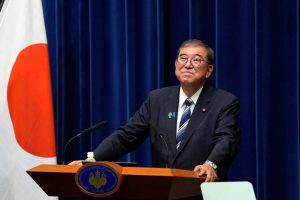Over the past week you will have seen a lot of news on the resignation of Robert Mugabe, following a coup from the military in Zimbabwe, and the consequent inauguration of a new President, Emmerson Mnangagwa. But where did this southern African nation’s complex socio-political tension emerge from? Below Girish Thanki, Partner at Stuart Miller, provides an insightful three stage breakdown of the situation, from the inception of Mugabe’s reign, to today’s current events.
Zimbabwe is a landlocked country to the north of South Africa. It is separated from Zambia in the north by the mighty Zambezi River. It has been in the news because of a bloodless army coup which deposed President Mugabe, who has been the leader of the country since independence from Great Britain in 1980.
1. It was previously known as Southern Rhodesia, deriving its name from the British coloniser, Cecil Rhodes. He established British rule in the late 19th Its rich farmland and copper and diamond mines made it a popular destination for white settlers. Although a British colony in reality, it was ruled by the white colonisers wholly excluding African suffrage.
While most of the countries in Africa were attaining independence from their colonial rulers, the white settlers led by the notorious white supremacist, Ian Smith, led a campaign to pressurise Great Britain to grant the country independence to be ruled by the whites. His campaign failed, which led to the declaration of Unilateral Declaration of Independence (UDI). Most black African leaders were imprisoned, including Robert Mugabe. The UDI led to sanctions against the country by Great Britain, supported by the United Nations.
2. The sanctions were successful which led to the country being granted independence in 1980. In the subsequent elections. Robert Mugabe’s ZANU party won the mandate to govern. ZANU incorporated with the opposition party, ZAPU, and even amalgamated the two parties to be called ZANU-PF. Soon the country became a one-party state and Mugabe, emboldened by his large mandate, turned the country into a Marxist style-economy with state control of all economic activity.
At the same time, many thousands of profitable white owned commercial farms were forcibly confiscated by the state without compensation. Many crimes were committed against the white settlers. Mugabe claimed that the matter of compensation was for the British government. Instead of the land being given to the poor peasant farmers, the political elite became owners, including Robert Mugabe and influential members of ZANU-PF. There was a flight of capital from the country from sophisticated money laundering operations. From being a large producer of food, Zimbabwe came to be reliant on foreign aid.
The country slid into poverty with rampant inflation and the central bank had to produce large denomination notes so that people could pay for basic necessities. Robert Mugabe’s government imprisonment and tortured many of the political opponents and curtailed press freedom. There was rampant and widespread fraud in all wakes of economic life. Crime. After economic depression and worsening foreign relations, Zimbabwe developed close relationships with China who is the greatest buyer of Zimbabwe’s tobacco and mining produce. It also has a major role in the improvement to Zimbabwe’s infrastructure.
3. The question of Mugabe’s succession became a live issue. It was largely perceived that Mugabe’s second wife, Grace, was his choice to become the next president of the country. This caused great resentment in the country as she was perceived as an avaricious woman, who openly flaunted her ill-gotten wealth. She was thought of having committed many crimes with impunity.
It was the sacking of the vice president, Emmerson Mnangagwa, which made the armed forces engineer a bloodless coup to force Mugabe into retirement.
Now reinstated as Zimbabwean President, Emmerson Mnangagwa is set to put together a team of new cabinet ministers and the country can hopefully return to a stable democracy, with a revival in its ailing economy.




















